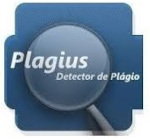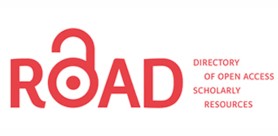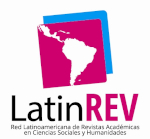BELIEFS, MEMORIES, AND DIALOGISMS IN THE NARRATIVE OF A STUDANT OF AN ADDITIONAL SPANISH LANGUAGE (EAL) TEACHER IN INITIAL TRAINING
DOI:
https://doi.org/10.47180/omij.v4i4.276Keywords:
Narrative, Beliefs, Trajectory, Formation, Spanish as an Additional LanguageAbstract
In this article, we will present a narrative that analyzes the beliefs, dialogisms, and memories that permeate the (re)construction of the identity of a Spanish teacher in initial formation. Therefore, this research is affiliated with Applied Linguistics (AL). We commence with the retrieval and writing of scenes from my life story, highlighting the formative trajectory in and through the Spanish language. Subsequently, we engage in reflective readings to build the theoretical foundation, following the suggested methodology of narrative research, guided by a qualitative-ethnographic literature review. This work provides a panoramic understanding of some beliefs and experiences with the language. With the aim of granting the teacher in training an opportunity for critical reflection on their historicity, beliefs, memories, and intuitions that led to the choice of Spanish as an additional language, weaving articulations of the learner's path. This allowed the identification of dialogical influences, potential, and challenges presented in this journey of constructing the 'teacher self’.
Downloads
References
ANTUNES, I. Língua, texto e ensino: outra escola possível. São Paulo:Parábola, 2018.
ALMEIDA FILHO, J. C. P. Dimensões comunicativas no ensino de línguas. Campinas:Pontes, 1993.
ARAUJO, H. J.; SOUZA, F. M. Crenças, Memórias e Intuições na Narrativa de um Professor Inglês – Língua Estrangeira – Em Construção. Afluente, 2017.
BAHKTIN, M. Questões de literatura e de estética: teoria do romance. São Paulo: Hucitec, 2010 [1934- 1935].
BAHKTIN, M. O freudismo. São Paulo: Perspectiva, 2007.
BAHKTIN, M.; VOLOCHÍNOV, V. N. Marxismo e Filosofia da Linguagem: problemas fundamentais do método sociológico na ciência da linguagem. São Paulo: Hucitec, 1997.
BARCELOS, A. M. F. Reflexões acerca da mudança de crenças sobre ensino e aprendizagem de línguas. Rev. Brasileira de Lingüística Aplicada, v. 7, n. 2, 2007. DOI: https://doi.org/10.1590/S1984-63982007000200006
BRASIL. Presidência da República. Lei nº 11.161, de 5 de agosto de 2005: Dispõe sobre o ensino da língua espanhola. Disponível em: <https://www.planalto.gov.br/ccivil_03/_Ato20042006/2005/Lei/L11161.htm>. Acesso em: 11 out. 2020.
CELANI, M. A. A. Transdisciplinaridades na Linguística Aplicada no Brasil. In: SIGNORINI, I.; CAVALCANTI, M. C. (Orgs.). Linguística e Transdisciplinaridade: Questões e Perspectivas. Campinas: EDUC/PUC- SP, 1992.
CELANI, M. A. A. Afinal, o que é Linguística Aplicada? In: PASCHOAL, M. S.; CELANI, M. A. A. (Orgs.). Linguística Aplicada: Da Aplicação da Linguística à Linguística Transdisciplinar. São Paulo: EDUC/PUC-SP, 1992.
CLANDININ, D. J.; CONNELLY, F. M. Pesquisa Narrativa: Experiência e História em Pesquisa Qualitativa. Trad: Grupo de Pesquisa Narrativa e Educação de Professores ILEEL/UFU. - Uberlândia: EDUFU, 2000.
DI CAMARGO JR., I.; SOUZA, F. M. Estudos da Linguagem e Mikhail Bakhtin: Uma Relação Dialógica. In: SOUZA, F. M. et al. (Orgs.). Bakhtin Dialogado: Alteridade, Relações Dialógicas e Sociedade. São Paulo: Mentes Abertas, 2020.
DÍAZ, F. O processo de aprendizagem e seus transtornos - Salvador: EDUFBA,2011.
FARACO, C. A. Linguagem & Diálogo as ideias linguísticas do círculo de Bahktin. São Paulo: Parábola, 2009.
FREIRE, P. A educação na cidade. Rio de Janeiro: Paz e Terra, 1991.
KLEIMAN, A. B. Introdução. E um início: a pesquisa sobre interação e aprendizagem. Trabalhos em Linguística Aplicada, v. 18, 1991.
KLEIMAN, A. O Ensino de Línguas no Brasil. In: PASCHOAL, M. S.; CELANI, M. A. A. (Orgs.). Linguística Aplicada: Da Aplicação da Linguística á Linguística Transdisciplinar. São Paulo: EDUC/PUC-SP, 1992.
KLEIMAN, A. O Estatuto disciplinar da Língüística Aplicada: O traçado de um Percurso. Um ramo para o debate. In: SIGNORINI, I.; CAVALCANTI, M. C. (Orgs.). Linguística Aplicada e Transdisciplinaridade: Questões e Perspectivas. Campinas: Mercado de Letras, 1998.
LÜDKE, M.; ANDRÉ, M. E. D. A. Pesquisa em educação: abordagens qualitativas. São Paulo: EPU, 1986.
MOITA LOPES, L. P. Afinal o que é Linguística Aplicada? In: MOITA LOPES, L. P. Oficina de Linguística Aplicada. Campinas: Mercado de Letras, 1996.
______________. Da aplicação de Linguística à Linguística Aplicada Indisciplinar. In: PEREIRA, R. C.; ROCA, P. (Orgs.). Linguística aplicada: um caminho com diferentes acessos. São Paulo: Contexto, 2009.
______________. Uma linguística aplicada mestiça e ideológica, interrogando o campo aplicado. In: MOITA LOPES, L. P. et al. Por uma linguística aplicada indisciplinar. São Paulo: Parábola, 2006.
ROJO, R. Práticas de letramento em diferentes contextos. In: Letramentos múltiplos, escola e inclusão social. São Paulo: Parábola Editorial, 2006.
SOUZA, F. M.; KANEOYA, M. L. C. K. Centro de Estudos de Línguas do Estado de São Paulo: Memórias, trajetórias e políticas. São Paulo: Mentes Abertas, 2019.
SOUZA, F. M. Potencialidades e limitações para a (re)significação e (re)construção de crenças do e no complexo processo de ensino-aprendizagem de línguas adicionais. In: COSTA JUNIOR, J. V. L.; LENDL. A.; SILVA, C. (Org.). Ensino de Línguas e Literaturas: Questões da Contemporaneidade, Rio de Janeiro: Oficina de Leitura, 2018.
SOUZA, F. M. O cinema como mediador na (re)construção de crenças de professores de espanhol-língua estrangeira em formação inicial. Tese (Doutorado em Educação: cultura, organização e educação). Faculdade de Educação da Universidade de São Paulo: USP, 2014.
TELLES, J. A. “A trajetória narrativa: histórias sobre a formação do professor de línguas e sua prática pedagógica” In: Trabalhos em Linguística Aplicada, 34. Campinas: UNICAMP, 1999.
Downloads
Published
How to Cite
Issue
Section
License
Copyright (c) 2023 Open Minds International Journal

This work is licensed under a Creative Commons Attribution-NonCommercial-NoDerivatives 4.0 International License.
The authors declare that any work submitted, if accepted, will not be published elsewhere, in English or in any other language, and even electronically, unless it expressly mentions that the work was originally published in the Journal.













